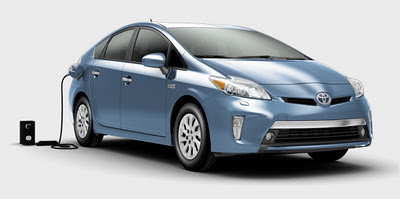Park model RV's can be very inexpensive - less than the cost of a new car. But are they really cost-effective?
We are staying in an RV park in central New York. It is very nice and all. Most of the RVs here are permanently ensconced - much as they are in many Florida parks. For some folks, these are weekend retreats. For others, they are a seasonal respite from the heat of the South - snowbirding on a budget.
One of the units is for sale - a 2008 32' Hornet, and it comes with a deck, an aluminum awning, and all the trash and treasures surrounding it, including a 2008 EZ-GO golf cart, jacked up as a "buggy" with all the tricked-out accessories any redneck would love. It is sitting on a 1/4 acre lot with a view. The owners are asking $17,000 and seem desperate to sell.
Sounds like a deal, right? I mean, you can buy a vacation home for less than the price of a new car - far less. Presuming you like the park it is parked in, and want to stay there for the summer months (June through September), is this a good deal? Or more precisely, how much would it cost to own?
The price of the trailer, plus golf cart, is fairly reasonable. From NADA guides:
| Suggested List Price |
Low Retail |
Average Retail |
|
|---|---|---|---|
| Base Price | $26,628 | $13,860 | $16,700 |
| Options: (add) | |||
| TOTAL PRICE: | $26,628 | $13,860 | $16,700 |
Right off the bat, you see that the original owners are taking a bath here, and the old rule of "Depreciates 50% every five years" applies here. The original owners paid close to $30,000 for the unit (with all the accessories) and now, five years later, are looking to unload for half that amount. They spent $3000 a year in depreciation on what was a weekend getaway home. That's about $200 a weekend, in depreciation, which isn't cheap.
The "lot rent" on the site is $1700 per season (June through September) or about $425 a month. The electricity is metered as well, and can run from $50 to over $100 a month. Let's use an average of $75 a month for our calculations.
The original owners thus spent about $5000 a year on this weekend retreat, which is a lot of money. That comes to $312.50 a weekend, assuming you went there every weekend, which they didn't. Like most "weekend warriors" they discovered on Friday they were too tired to drive two hours to the RV park, and besides there is laundry to do and weeding in the garden.
Let's face it - if you own a home, having a camper as a "weekend getaway" is a horrifically expensive luxury. For $312.50 a weekend, these owners could have afforded to rent a cabin or RV at the park, or towed a smaller RV there - and have the option of paying-as-you-go.
But again, other residents use these RVs as a summer home, living there from June through September, which means the unit gets used and thus the overall cost, in terms of cost-per-day-of-stay is far lower. If they had lived there "full time" (for the whole season) the cost would drop to about $42 a day, which is more reasonable. However, they are still paying $1250 per month, which is more than I pay to live in my house in Georgia (which is paid for). Suddenly, living in a trailer looks less and less attractive.
Of course, if we bought this nightmare, our costs would be less. Assuming we offer them a fair price of $15,000, our depreciation over five years would be $7500 or $1500 a year. This brings the overall cost to $3500 a year - a lot less than the original owners paid. Note how depreciation is the big ticket item, but in our case, would be less than the cost of lot rent.
Of course, most folks don't calculate overall costs this way. Rather than take into consideration the real cost of depreciation (the amount you paid minus the remainder value) they look at the monthly installment payment costs. So they think of the trailer as costing $350 a month in payments, as that is what the loan company charges them. This usually ends up being a smaller number than the depreciation - which is one reason many loans chase depreciation, and lose the race, leaving the owner "upside-down" on the trailer.
For us, therefore, the cost of living seasonally in this RV park would be about $875 a month, or about what a very nice apartment or small house in the area would rent for. It might be slightly cheaper than renting an apartment or even owning a home, but not by much.
Some folks might look at this as a cheaper alternative to owning a home, as they look at the cost of owning a home in terms of the monthly mortgage payment (which they view as perpetual, and that perpetual mortgage payments are "normal"). Some folks will live full-time in such RVs or have one "up North" for the summer months, and another in Florida for the winter. Florida is covered with such RV parks, which you realize the first time you fly there and see them as you approach the airport (they are usually located in less-desirable areas, like airport landing paths).
$875 or even $1250 a month might seem like a reasonable amount of money to spend on monthly living. But then again, if you own a home, the costs of living there could be about the same, perhaps even less - when you factor in appreciation over time. But again, most folks look at the monthly payment and not the monthly costs - and the two are not the same thing! So, Mom and Dad sell the family home and downsize to an RV or trailer, convinced it is "cheaper" as they no longer have to pay a $2500-a-month mortgage payment. But a cheaper house, "paid for" would probably be a better deal down the road.
Is living in an RV park cheaper than traveling by RV? You betcha. Even the cheapest State Parks charge $20 a night. So the monthly lot rent easily exceeds $600 a month, perhaps more, as some parks are $30, $40, $50, and even over $100 a night. Throw in $20 a day for gas (if you travel every three-four days and use one tank of gas every travel day, as we do) and you are looking at well over $1200 a month just in lot rent and gasoline - not to mention depreciation costs of the RV and tow vehicle.
But then again, when you travel, you are traveling, and get to see new things and explore new places. It is an entirely different mindset than living in a trailer park.
Sadly, many people buy RVs with the idea of traveling and "seeing America" in their retirement. And they do it, for a while, before they realize that it costs a lot more money to "see America" than they first thought it would - and they end up living full-time in a trailer park, after a while, in order to be able to afford the "lifestyle". It is one of those weird time-shifting expense deals, fueled by low-cost financing and upside-down loans. Yes, you can do it for the first few years, and then reality sets in, and the new motorcoach isn't what it used to be, and you wake up one day and realize you've been living in a trailer park for the last five years.
It is interesting to crank the numbers on things like this - and one should crank the numbers on anything. The original owners of this trailer we are looking at are a couple of academics working at a local university, and despite their education, might not have cranked the numbers on the overall costs of owning what turned out to be a very expensive weekend retreat.
Even at a "steal" of a price, such a deal is still pricey. You'd better like staying at that park, or it could turn into a depreciation nightmare - as it was for the original owners in this deal.










